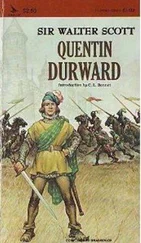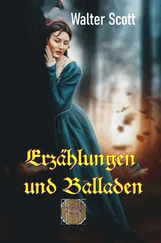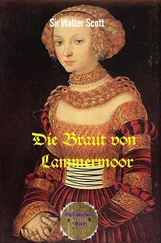Walter Scott - Letters on Demonology and Witchcraft
Здесь есть возможность читать онлайн «Walter Scott - Letters on Demonology and Witchcraft» весь текст электронной книги совершенно бесплатно (целиком полную версию без сокращений). В некоторых случаях можно слушать аудио, скачать через торрент в формате fb2 и присутствует краткое содержание. Жанр: История, на английском языке. Описание произведения, (предисловие) а так же отзывы посетителей доступны на портале библиотеки ЛибКат.
- Название:Letters on Demonology and Witchcraft
- Автор:
- Жанр:
- Год:неизвестен
- ISBN:нет данных
- Рейтинг книги:4 / 5. Голосов: 1
-
Избранное:Добавить в избранное
- Отзывы:
-
Ваша оценка:
- 80
- 1
- 2
- 3
- 4
- 5
Letters on Demonology and Witchcraft: краткое содержание, описание и аннотация
Предлагаем к чтению аннотацию, описание, краткое содержание или предисловие (зависит от того, что написал сам автор книги «Letters on Demonology and Witchcraft»). Если вы не нашли необходимую информацию о книге — напишите в комментариях, мы постараемся отыскать её.
Letters on Demonology and Witchcraft — читать онлайн бесплатно полную книгу (весь текст) целиком
Ниже представлен текст книги, разбитый по страницам. Система сохранения места последней прочитанной страницы, позволяет с удобством читать онлайн бесплатно книгу «Letters on Demonology and Witchcraft», без необходимости каждый раз заново искать на чём Вы остановились. Поставьте закладку, и сможете в любой момент перейти на страницу, на которой закончили чтение.
Интервал:
Закладка:
Such possession of supernatural wisdom is still imputed by the natives of the Orkney and Zetland Islands to the people called Drows , being a corruption of duergar or dwarfs , and who may, in most other respects, be identified with the Caledonian fairies. Lucas Jacobson Debes, who dates his description of Feroe from his Pathmos, in Thorshaven, March 12, 1670, dedicates a long chapter to the spectres who disturbed his congregation, and sometimes carried off his hearers. The actors in these disturbances he states to be the Skow , or Biergen-Trold — i.e. , the spirits of the woods and mountains, sometimes called subterranean people, and adds, they appeared in deep caverns and among horrid rocks; as also, that they haunted the places where murders or other deeds of mortal sin had been acted. They appear to have been the genuine northern dwarfs, or Trows, another pronunciation of Trollds, and are considered by the reverend author as something very little better than actual fiends.
But it is not only, or even chiefly, to the Gothic race that we must trace the opinions concerning the elves of the middle ages; these, as already hinted, were deeply blended with the attributes which the Celtic tribes had, from the remotest ages, ascribed to their deities of rocks, valleys, and forests. We have already observed, what indeed makes a great feature of their national character, that the power of the imagination is peculiarly active among the Celts, and leads to an enthusiasm concerning national music and dancing, national poetry and song, the departments in which fancy most readily indulges herself. The Irish, the Welsh, the Gael, or Scottish Highlander, all tribes of Celtic descent, assigned to the Men of Peace, Good Neighbours, or by whatever other names they called these sylvan pigmies, more social habits, and a course of existence far more gay, than the sullen and heavy toils of the more saturnine Duergar. Their elves did not avoid the society of men, though they behaved to those who associated with them with caprice, which rendered it dangerous to displease them; and although their gifts were sometimes valuable, they were usually wantonly given and unexpectedly resumed.
The employment, the benefits, the amusements of the Fairy court, resembled the aerial people themselves. Their government was always represented as monarchical. A King, more frequently a Queen of Fairies, was acknowledged; and sometimes both held their court together. Their pageants and court entertainments comprehended all that the imagination could conceive of what was, by that age, accounted gallant and splendid. At their processions they paraded more beautiful steeds than those of mere earthly parentage—the hawks and hounds which they employed in their chase were of the first race. At their daily banquets, the board was set forth with a splendour which the proudest kings of the earth dared not aspire to; and the hall of their dancers echoed to the most exquisite music. But when viewed by the eye of a seer the illusion vanished. The young knights and beautiful ladies showed themselves as wrinkled carles and odious hags—their wealth turned into slate-stones—their splendid plate into pieces of clay fantastically twisted—and their victuals, unsavoured by salt (prohibited to them, we are told, because an emblem of eternity), became tasteless and insipid—the stately halls were turned into miserable damp caverns—all the delights of the Elfin Elysium vanished at once. In a word, their pleasures were showy, but totally unsubstantial—their activity unceasing, but fruitless and unavailing—and their condemnation appears to have consisted in the necessity of maintaining the appearance of constant industry or enjoyment, though their toil was fruitless and their pleasures shadowy and unsubstantial. Hence poets have designed them as " the crew that never rest ." Besides the unceasing and useless bustle in which these spirits seemed to live, they had propensities unfavourable and distressing to mortals.
One injury of a very serious nature was supposed to be constantly practised by the fairies against "the human mortals," that of carrying off their children, and breeding them as beings of their race. Unchristened infants were chiefly exposed to this calamity; but adults were also liable to be abstracted from earthly commerce, notwithstanding it was their natural sphere. With respect to the first, it may be easily conceived that the want of the sacred ceremony of introduction into the Christian church rendered them the more obnoxious to the power of those creatures, who, if not to be in all respects considered as fiends, had nevertheless, considering their constant round of idle occupation, little right to rank themselves among good spirits, and were accounted by most divines as belonging to a very different class. An adult, on the other hand, must have been engaged in some action which exposed him to the power of the spirits, and so, as the legal phrase went, "taken in the manner." Sleeping on a fairy mount, within which the Fairy court happened to be held for the time, was a very ready mode of obtaining a pass for Elfland. It was well for the individual if the irate elves were contented, on such occasions, with transporting him through the air to a city at some forty miles' distance, and leaving, perhaps, his hat or bonnet on some steeple between, to mark the direct line of his course. Others, when engaged in some unlawful action, or in the act of giving way to some headlong and sinful passion, exposed themselves also to become inmates of Fairyland.
The same belief on these points obtained in Ireland. Glanville, in his "Eighteenth Relation," tells us of the butler of a gentleman, a neighbour of the Earl of Orrery, who was sent to purchase cards. In crossing the fields, he saw a table surrounded by people apparently feasting and making merry. They rose to salute him, and invited him to join in their revel; but a friendly voice from the party whispered in his ear, "Do nothing which this company invite you to." Accordingly, when he refused to join in feasting, the table vanished, and the company began to dance and play on musical instruments; but the butler would not take part in these recreations. They then left off dancing, and betook themselves to work; but neither in this would the mortal join them. He was then left alone for the present; but in spite of the exertions of my Lord Orrery, in spite of two bishops who were his guests at the time, in spite of the celebrated Mr. Greatrix, it was all they could do to prevent the butler from being carried off bodily from amongst them by the fairies, who considered him as their lawful prey. They raised him in the air above the heads of the mortals, who could only run beneath, to break his fall when they pleased to let him go. The spectre which formerly advised the poor man continued to haunt him, and at length discovered himself to be the ghost of an acquaintance who had been dead for seven years. "You know," added he, "I lived a loose life, and ever since have I been hurried up and down in a restless condition, with the company you saw, and shall be till the day of judgment." He added, "that if the butler had acknowledged God in all his ways, he had not suffered so much by their means; he reminded him that he had not prayed to God in the morning before he met with this company in the field, and, moreover, that he was then going on an unlawful business."
It is pretended that Lord Orrery confirmed the whole of this story, even to having seen the butler raised into the air by the invisible beings who strove to carry him off. Only he did not bear witness to the passage which seems to call the purchase of cards an unlawful errand. [25] [25] "Sadducismus Triumphatus," by Joseph Glanville, p. 131. Edinburgh, 1790.
Individuals, whose lives had been engaged in intrigues of politics or stratagems of war, were sometimes surreptitiously carried off to Fairyland; as Alison Pearson, the sorceress who cured Archbishop Adamson, averred that she had recognised in the Fairy court the celebrated Secretary Lethington and the old Knight of Buccleuch, the one of whom had been the most busy politician, the other one of the most unwearied partisans of Queen Mary, during the reign of that unfortunate queen. Upon the whole, persons carried off by sudden death were usually suspected of having fallen into the hands of the fairies, and unless redeemed from their power, which it was not always safe to attempt, were doomed to conclude their lives with them. We must not omit to state that those who had an intimate communication with these spirits, while they were yet inhabitants of middle earth, were most apt to be seized upon and carried off to Elfland before their death.
Читать дальшеИнтервал:
Закладка:
Похожие книги на «Letters on Demonology and Witchcraft»
Представляем Вашему вниманию похожие книги на «Letters on Demonology and Witchcraft» списком для выбора. Мы отобрали схожую по названию и смыслу литературу в надежде предоставить читателям больше вариантов отыскать новые, интересные, ещё непрочитанные произведения.
Обсуждение, отзывы о книге «Letters on Demonology and Witchcraft» и просто собственные мнения читателей. Оставьте ваши комментарии, напишите, что Вы думаете о произведении, его смысле или главных героях. Укажите что конкретно понравилось, а что нет, и почему Вы так считаете.









